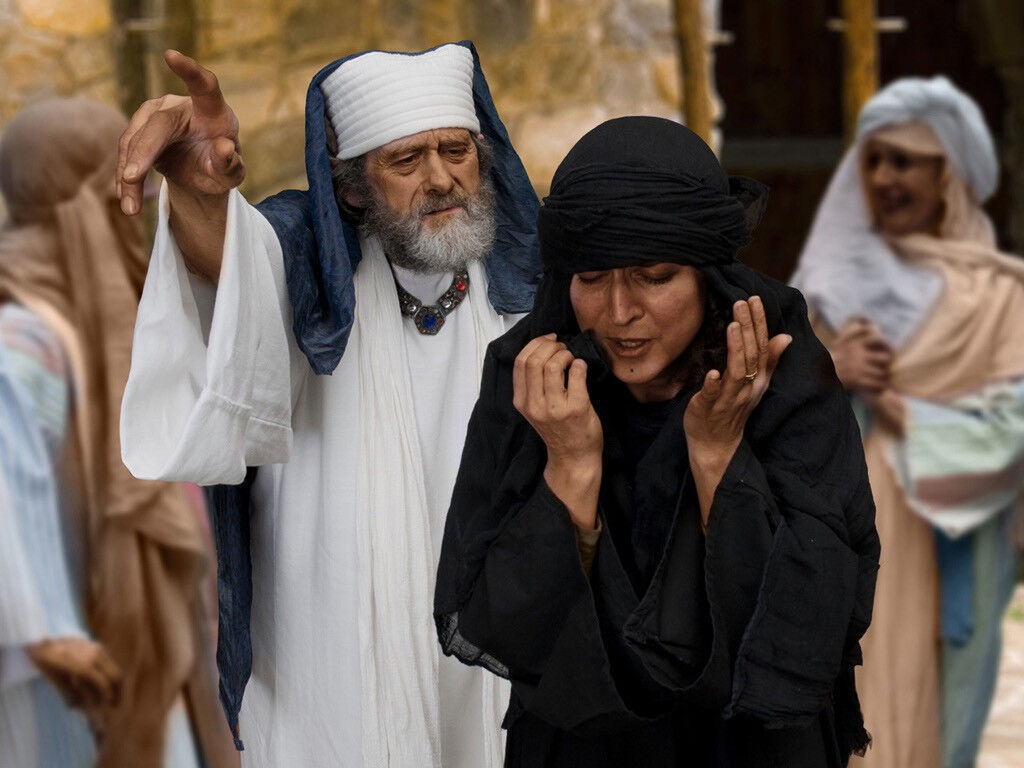421 total views
The Lord Is My Chef Sunday Recipe for the Soul by Fr. Nicanor F. Lalog II Twenty-Ninth Sunday in Ordinary Time, Cycle C, 16 October 2022 Exodus 17:8-13 ><000'> 2 Timothy 3:14-4:2 ><000'> Luke 18:1-8

Time flies so fast that there are only five Sundays left in our liturgical calendar before Advent comes in preparation for Christmas. For the next three Sundays beginning today, we shall again hear three gospel stories found only in Luke that underscore the importance of faith and prayer, revealing to us the beautiful image of God who “does justice” to defenseless people like the widow today, “justifies” those who humble themselves like the publican next Sunday, and “saves” sinners like Zacchaeus two Sundays from now.
As we reflect on God’s goodness, we discover along the way our own giftedness that we must share with people around us, especially those suffering and in need.
Jesus told his disciples a parable about the necessity for them to pray always without becoming weary. He said, “There was a judge in a certain town who neither feared God nor respected any human being. And a widow in that town used to come to him and say, ‘Render a just decision for me against my adversary.’ For a long time the judge was unwilling, but eventually he thought, ‘While it is true that I neither fear God nor respect any human being, because this widow keeps bothering me I shall deliver a just decision for her lest she finally come and strike me.’”
Luke 18:1-5

Both the widow and the unjust judge exhibited admirable traits we are all invited to emulate: the widow being persistent and the unjust judge eventually becoming a just one in handing a good decision.
Jesus intentionally used the image of the widow in this parable because widows in his time were particularly powerless and vulnerable. Recall how Jesus was moved with pity on a widow upon witnessing the funeral of her young son in Nain (Lk.7:11-16).
Imagine the very sad plight of widows in ancient time when women were not even considered as persons at all that they were not counted like the children; women were totally dependent to their husband and sons in their lives that if they die, the widows left behind were reduced to nothing at all because they could not inherit their husband’s estate that was passed on to the deceased man’s sons or brothers.

The widow in this parable tells us of the need for us to be powerless like her, to totally entrust ourselves to God who is our only hope in life. The widow had no other recourse but to persistently beg the unjust judge for a favorable ruling for her. That is the spirit and attitude we must have when praying which is a call for our total surrender of self to God.
And here lies the difficulty for us especially these days when we spend so much efforts to be powerful than powerless. This we have been practicing extensively in social media where we always want to be the one in control of everything, of being the first to post the latest and hottest news and gossips, of flaunting our newly acquired expensive gadgets or received gifts, of making known to everyone our sumptuous meals or how we have gone to some expensive far-away vacation spot. Come on, one can easily determine when we are posting simply to share or to brag.
As much as possible, we try to resolve our problems using our own powers. We pray and come to God only when all options have been exhausted, when we feel hopeless because it is already beyond our powers. Prayer is more of a last resort than our first recourse because God is only a “footnote” or a safety-catch in our lives in case we go through severe tests like tragedy, illness, death of a loved one, or failure in whatever form.
The widow in this parable reminds us of that beautiful lesson we have reflected these past Sundays that faith is a relationship nourished and nurtured by our prayer.
People who love always talk. They always relate and communicate for no reason at all simply because they love and care for each other. Like the widow, wala nang iba talaga!
If prayer is conversing with God, then, we would always relate with him whether our problem is big or small, serious or not, or even if we have no problem at all because we love him! Without God, we find no meaning and strength to hurdle life’s challenges.
This is the meaning of that story of Moses praying to God on top of a hill while Joshua battled the forces of Amalek in the wilderness; it was the power of God that prevailed over Israel’s enemies because they all relied in him alone. It is the similar story of the Feast of our Lady of the Rosary when the outnumbered Spanish fleet defeated the Ottoman Turks at Lepanto Bay (07 October 1571) while Christians prayed the Holy Rosary as instructed by St. Pope Pius V.
When was the last time have you felt like the widow before God, of having that attitude there is nobody else who can fulfill us except God?

On the other hand, we are also the unjust judge in this parable for we are not only sinful and unjust like him but also blessed with great powers to help those in need!
Many times, we act like the unjust judge when we refuse to recognize and admit the great powers – with its great responsibilities – God had given us in our various capacities and positions in life. We may not be issuing verdicts in courts but everyday, our decisions matter so much to those around us right in our own families, in our schools, in our offices and in our neighborhood and community.
Confronted by the persistent widow without any means to pay and bribe the unjust judge, we are reminded most especially to have a heart in favor of those who have less in life. One of the most important lessons I have learned in priesthood happened during our final year of formation in the seminary when our former bishop, the Most Rev. Rolando J. Tria-Tirona of Naga City told us in a conference that “those who have less in life must have more of God”.
Beautifully true but sadly, far from happening in our Church because we rarely use the powers God has shared with us to love and save, to heal and raise to new life people saddled with so many sufferings and sins in life. Like the unjust judge, may we open our eyes and hearts to the plight of the powerless around us.
Have faith that even the most evil persons are capable of doing the right thing. Imagine if every disciple of Christ is a man of faith despite of his/her sinfulness and weaknesses? That would be so nice as life could be a bit better and fair for everyone! This is the reason why at the end of the parable, Jesus asked the crucial question:
“But when the Son of Man comes, will he find faith on earth?”
Luke 18:8

Has anyone ever told you that you are “the answer to his/her prayers?” In life, God answers our prayers through one another, through faithful disciples who are both powerless before God and powerful in God.
We all have this great power of God in our hands, in effecting change, in bringing peace and justice to this world through the power of his word as St. Paul reminds us today in the second reading.
I charge you in the presence of God and of Christ Jesus, who will judge the living and the dead, and by his appearing and his kingly power; proclaim the word; be persistent whether it is convenient or inconvenient; convince, reprimand, encourage through all patience and teaching.
2 Timothy 4:1-2

We live in a world characterized not only with great desire and display of power but also of instant gratification. We have lost the virtues and values of patience, persistence, and perseverance. Everything must be had instantly. Now na!
This Sunday’s parable invites us to recover our great power in God by being powerless before him again so we may be the answered prayers of many people suffering and thirsting for justice and mercy, forgiveness and salvation.
Be that person of faith and power of God. The widow and needy person who comes to you could be Jesus Christ himself. Amen. Have a blessed week ahead!5
















